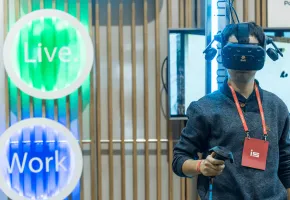 26.07.2019
26.07.2019
Grow with Tech: Smart Startup
Smart has a nice ring to it. It’s lovely to say something or someone is smart. Yet, it can mean so many different things.
Smart has a nice ring to it. It’s lovely to say something or someone is smart. Yet, it can mean so many different things. And not all smarts are the same. A company building smart devices does not automatically mean that the people behind the things are necessarily smart or acting smart in the long term.
Our devices are becoming ever more connected. They are the ultimate spying equipment that Q of Bond movies could have only dreamed of. Sloppy coding can breach your firewall and privacy for years without most users ever knowing it. A device is smart enough to leak your information but not clever enough to stop this independently.
A smart company needs to think closely what they actually want to achieve. Some things are easier to change, yet others are more one-way streets with a lot of hardship involved in reversing the course.
The formation years of a startup define many of the things that are hard to change later. These may seem like minor issues or non-priorities when so many bigger pressing matters are calling for immediate action.
Yet, the silent ones can be heavy hitting, or even fatal, issues later on. My top favourites are the business model, culture and people.
A company’s business model says loud and clear what they are really doing. It’s hard to deny something that is a necessity for your revenues. Google and Facebook are examples where you, the user, are the product. They are information hungry for a very good reason. It’s a money-making machine.
In comparison, Apple primarily profits from selling devices and therefore they have a more credible claim of aligning user privacy, letting users be in control of their own information.
The tide is turning from a centralised top-down hierarchy of data collection to a user-powered, controlled, decentralised model. People are weary of data breaches, but leaks can have dire consequences due to cheaper data mining, mass handling and surveillance.
Culture is something that happens anyway. You have a culture whether you consciously are aware of it or not. Often, the first people in a company define, by their own actions and values the way things are done in the future. Culture eats strategy for breakfast. Once something is a habit, it’s difficult to change.
Nice statements have very little relevance if your performance goals and required results are in conflict with them. Incentive structures are powerful tools that shape your culture, for better or worse.
This leads to the most crucial component: people. Values and integrity define outcomes. If you have a culture where long-term business relationships with clients are of the utmost importance, it shows in the user experience and the quality of the products. And all these start and end with people.
If they are not comfortable with your business model or culture, it will show. What does it say about your company and products, if the very people who build them, in order to maintain their credibility, distance themselves, claiming that they don’t actually use them? I just work here. It’s just my job.
Building trust takes time but losing trust takes seconds.
Showing love to the customer is a good way to earn their respect and loyalty. A good quality product oozes trust and care. It is a delight to discover new features in products that you have been using for years. It tells someone has paid attention to detail and thought about you, the end-user.
Being smart involves the Why at the beginning. Why are we doing what we do? This brings us to the other important question of who our customers, the ones that really pay the bills, are. They may not be the one actually using our products.
Ambiguity on these two points tends to lead to confusion and conflict later on. This is a business model issue: It’s hard to serve two masters.
Your business model and culture attract a certain type of people. And they define the quality of your offerings and customer experience. This is where the short term meets the long-term and your profits.
There are so many ways to be smart. What is yours?
Petri Kajander, A business artist building the future with growth companies focusing on strategy, branding and funding. He advises startups and leaders, mentors and coaches in startup programs and universities, writes on technology and society. More articles about startups, business and new tech trends you'll find in Grow with Tech Magazine. You can download it here.
Tags:
See also:
LATEST NEWS
Od czego zależy sukces wdrożeń AI? - polskie i amerykańskie trendy w branży tech 24.10.2025
Five highlights from EU Space Days 2025 13.06.2025
🤝 Networking i zabawa na Infoshare 2025 30.04.2025
⭐ Spotkaj liderów innowacji | Keynote Speakers 23.04.2025
🎸 Zagraj na Great Networking Party | Call for Bands 16.04.2025
🏆 Gdańsk Startup Award – Twoja Szansa na Sukces! 09.04.2025



